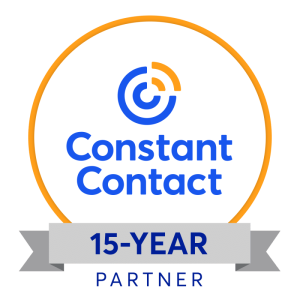Knowing how to go after important recognition awards and then leverage them can have a long-term impact on your business.
Companies all across the country are doing great work that goes unnoticed. Why? There are many reasons. Some businesses don’t like to brag about their accomplishments. They don’t apply for awards that might put them in the spotlight because they don’t want to be seen as boastful or conceited.
It’s great to be humble, but recognition is important to be known as an expert in your field. And who doesn’t want that? Let’s face it: no one wants to work with an average company. We all want to do business with innovators, those who continuously improve and push the limits.
So, how do you get appropriate bragging rights? Get noticed for your work? Generate positive word of mouth and establish your “brand promise?”
Related: 20 Ways to Master Your Personal Brand on LinkedIn in 2024 and Beyond
Awards that build credibility
Awards are one way to differentiate your business. However, I learned early on that to get noticed, you must do something truly award-worthy. I like awards that demonstrate business results. For example, I sit on the Michigan Celebrates Small Business (MSCB) board, a 501c3 that awards the 50 Companies to Watch. These are high-potential, second-stage companies that demonstrate excellence and support the economy.
Industry or supplier awards are also impressive. An industry group or professional organization usually sponsors these awards. They show that the work is excellent and noteworthy compared to your peers. Before you apply for any award, do your homework. What do you know about the sponsoring organization? Are the criteria specific and understandable? Is there a rigorous process? Are the judges independent experts or individuals who will simply select their buddies? Does the list of past winners include well-known and respected companies? If so, you might want to apply.
Finally, there are community awards. Many non-profits recognize individuals and companies that “do good” and help advance their programs or mission. Using your skills and your company’s resources for these non-profits can provide visibility. However, I believe this should not be your goal. Give without expecting anything back, and don’t do it unless you really care about the organization. If you are honored for your efforts, accept the accolades humbly.
Related: The Secret to Winning Awards for Publicity and Credibility
Content that gets you noticed
Here are a few tips for making your award application stand out. Avoid boring, typical information. No one cares about detailed historical information. Instead, focus on what others will consider remarkable. Did you develop something avant-garde? Have you managed to find a simple solution to a complex problem? Are you starting or defining a whole new industry? Be creative and tell a story. It takes time and attention to apply for awards. I spend as much time writing an award application as on a client project. Sure, it’s lots of work, but it is also a great way to showcase what you can do and be recognized as a leader. If you aren’t going to do the hard work it takes to win, don’t bother.
My company was asked to apply for — and won — the Woman Owned Small Business Supplier of the Year from Siemens in 2018. It was a great honor. Over the years, we have won five Telly Awards, which “honor excellence in television and video across all screens.” In 2023, we won our sixth Gold Telly for a documentary titled “A Story to Remember” about a woman’s dementia journey. These awards, and many others, have helped our team be recognized for work that we love to do. (See, that is how you brag.)
One thing to note: an award is not an award is not an award. Some are just vanity awards. This year, I was told I could be “An Inspiring Woman Leader” for $1800, an “Admired Leader” for $1500, or a “Top 10 Influential Leader” for a mere $900. I know individuals who take advantage of these promotional opportunities, and I do not judge. However, I like to stick to awards that have substance. Not those that are pay-to-play.
Related: Winning Small Business Awards Can Boost Your Company’s Credibility. Here’s How to Get Started.
Spread the word
It shows staying power when you are consistently recognized, and you should capitalize on the news.
Today, social media and online communities can help spread the word. But it is not just going to happen. You need to have an established social network and understand what you want to be known for in advance. You can blog or share content you have aggregated on relevant communication channels. Then, when you do win a big award or get noticed, people will promote and share that news on your behalf. Be sure you make these announcements on time.
There are also some simple ways to pass along the news and brag. Add an announcement to your company phone greeting. Put a tagline on the bottom of your e-mail signature or other digital communications saying “The Winner of…” Add it to your website or Facebook page if you get press coverage. You want the information to live on beyond the initial announcement.
Knowing how to go after important recognition awards and then leverage them can impact your business in the long term. It adds credibility as you expand your reach into new markets. It boosts employee morale and pride. And, if you are looking to position your business for an acquisition, merger or sale, the goodwill you get from recognition makes your firm more desirable and saleable.
So, start applying for awards, and when you win, go ahead and brag. It’s not a bad thing.

Article by Cynthia Kay
ENTREPRENEUR LEADERSHIP NETWORK® CONTRIBUTOR
A small business leader for over 35 years.












.png)














Leave A Comment
You must be logged in to post a comment.